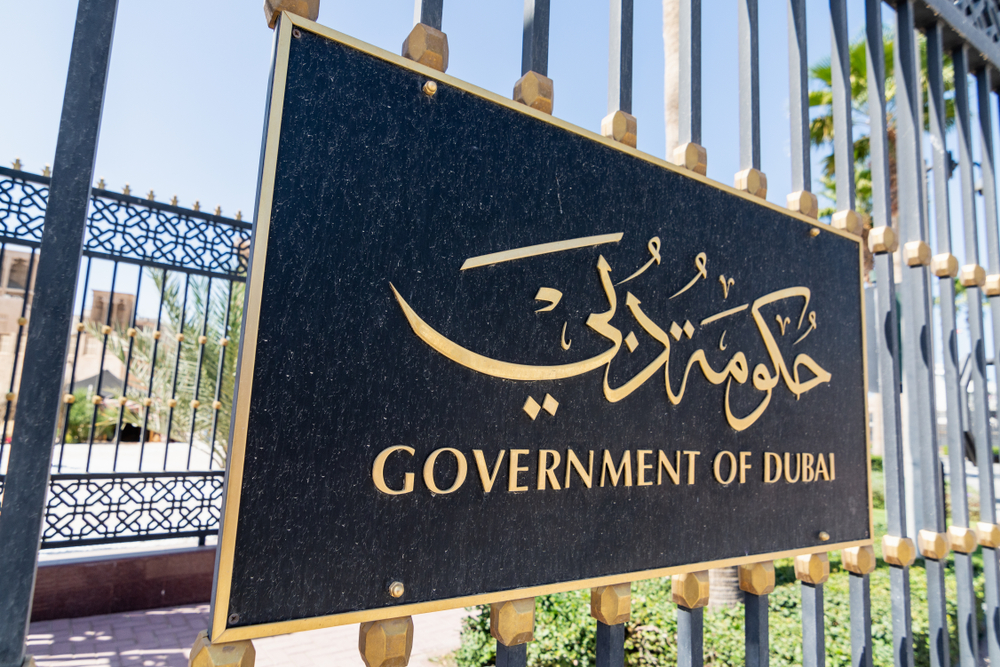Empowering
Global
Talent
MG Consulting Group

In June 2025, Dubai introduced the One Freezone Passport, a groundbreaking initiative that allows businesses to operate across multiple free zones with just a single license.
It’s a move aimed at simplifying business operations and boosting Dubai’s attractiveness as a business hub.
But here’s the thing: as Dubai continues to evolve, the labor laws in Dubai also change, and these changes affect how businesses operate and engage with their workforce.
Now more than ever, staying on top of these laws is essential for your business. If you’re a business owner or workplace leader, understanding these updates can save you from mistakes, fines, and even reputational damage.
That’s why in this piece, we have broken down the most important legal changes you need to know to keep your business compliant and thriving.
1. Fixed-Term Contracts: Goodbye to Unlimited Contracts
Dubai has now moved to a system where only fixed-term contracts are allowed. You might be used to the flexibility of unlimited contracts, but those are being phased out. From now on, contracts will be capped at three years.
Why It Matters for Your Business:
- Clarity: Fixed-term contracts make expectations clear for both employers and employees. You’ll know exactly how long the relationship lasts, and employees will know when their contract ends.
- Job Security: For employees, this brings more transparency and job security, which can help with retention.
- End of Uncertainty: The old system allowed for indefinite contract durations, which sometimes led to confusion about the stability of jobs. This shift will eliminate that ambiguity.
So, if you’re still working with unlimited contracts, it’s time to update your policies. This new rule is all about providing clarity and security for both sides of the employment relationship.
2. Remote Work Regulations: A New Era of Flexibility
If your business embraced remote work during the pandemic, you’re not alone. But now, Dubai’s labor laws have caught up with the times. Remote work contracts will now need to include specific clauses about work hours, job responsibilities, and employee benefits.
What You Need to Do:
- Work Hours Compliance: Even if your employees are working remotely, the same 48-hour workweek applies. So, make sure your remote work contracts reflect that.
- Performance Metrics: You’ll need to define clear performance goals and productivity expectations.
- Leave & Insurance: Remote workers must receive the same benefits as on-site employees, including annual leave and health insurance.
This shift in the law aims to provide remote workers with the same rights and protections as their office-bound counterparts. It’s about making sure that working from home doesn’t mean being treated differently.
If you have remote employees (or plan to hire them), make sure you’re including the right clauses in your contracts to stay compliant with this new regulation.
3. The Midday Work Ban Continues
Here’s a tried-and-true law that’s not going anywhere: the midday work ban for outdoor workers during the hot summer months.
From June 15 to September 15, employers are not allowed to require employees to work outdoors between 12:30 PM and 3:00 PM.
Why It’s Crucial:
- Health and Safety: This rule is all about protecting workers from the extreme heat, which can be dangerous, especially for those working outdoors like in construction or landscaping.
- Penalties for Non-Compliance: If you fail to comply with this rule, your business could face hefty fines and penalties.
If your employees work outdoors, it’s essential to adapt your schedules during these months. Maybe shift work to cooler hours or provide indoor tasks during the midday break.
This is a simple compliance issue that’s easy to address with a little planning.
4. The ‘One Freezone Passport’ Initiative
Dubai has always been a hub for businesses operating in free zones, but now it’s even easier.
The One Freezone Passport initiative allows businesses to operate across multiple free zones with just one license.
This is a huge move toward simplifying the regulatory environment for companies.
How This Can Benefit You:
- Cost Savings: You don’t need to pay for multiple licenses to operate in different free zones. This can save a lot of money in the long run.
- Easier Operations: It reduces the red tape for businesses and makes it simpler to scale operations across Dubai’s free zones.
- Increased Investment: By making it easier for businesses to operate, Dubai is positioning itself as an even more attractive place to invest and do business.
If you’re in the business of operating across multiple zones, this is a game-changer. Make sure you’re aware of how this initiative could impact
your operations and streamline your processes.
5. The Flexible Summer Work Hours Initiative
Dubai has introduced the ‘Our Flexible Summer’ initiative, which is designed to help employees beat the heat during the summer months.
This program reduces work hours in the public sector, providing employees with a three-day weekend and adjusting their working hours to be more manageable during the hottest months of the year.
How It Affects Employers:
- Better Work-Life Balance: The flexible summer hours are designed to promote well-being and prevent burnout during the hot summer months.
- Higher Productivity: With the extra rest, employees may be more productive during the rest of the year.
- Employee Satisfaction: Offering flexible working hours can boost morale and improve retention rates.
If you’re in the public sector or even in the private sector and considering offering flexible summer schedules, this is an excellent way to promote employee well-being.
6. Crackdown on Illegal Housing for Migrant Workers
Dubai has launched a crackdown on the illegal housing of migrant workers, particularly those in overcrowded or unsafe accommodations.
This is part of a broader initiative to improve the living conditions for workers across the emirate.
What You Need to Know:
- Housing Standards: Employers are required to provide safe, compliant housing for their workers. This is especially important for those in lower-income positions.
- Penalties for Non-Compliance: Failure to comply with housing regulations could result in significant fines, as well as damage to your business’s reputation.
- Protecting Workers: This crackdown ensures that workers are not subjected to unsafe living conditions, which could negatively impact their health and work performance.
If your business involves hiring workers in lower-paid or migrant roles, it’s important to review your housing arrangements.
Make sure they comply with the regulations to avoid penalties and provide a better quality of life for your workers.
If you are curious on what hiring in the region might look like in the future, read our blog post on The Future of Hiring and Recruitment in the Middle East.
7. Emiratisation: The Push for More Emirati Workers

Dubai’s Emiratisation initiative continues to gain momentum.
The UAE government is actively working to increase the number of Emiratis in the workforce, particularly in the private sector.
By 2025, businesses will be expected to meet specific Emiratisation targets, particularly in
sectors like retail, banking, and hospitality.
How This Affects You:
- Hiring Quotas: Businesses may need to meet certain quotas for Emirati hires. This could involve additional training or hiring practices.
- Penalties for Non-Compliance: Failure to meet these quotas can lead to fines or restrictions on future business operations.
- Business Opportunity: Hiring Emiratis is not just about compliance—it’s also a great way to connect with the local market and tap into a more diverse workforce.
It’s essential for businesses to start planning their Emiratisation strategy now. This may involve partnering with top recruitment agencies in the Middle East to help you find the right local talent.
Conclusion
Staying compliant with Dubai Labor Laws has never been more critical. These changes reflect the city’s forward-thinking approach to business, but they also bring new responsibilities for employers.
By keeping up-to-date on them—whether it’s adapting to fixed-term contracts, remote work regulations, or employee benefits—your business will not only avoid penalties but also create better working conditions and maintain a competitive edge.
Frequently Asked Questions (FAQ)
1. What is the significance of the ‘One Freezone Passport’ initiative for businesses in Dubai?
The One Freezone Passport allows businesses to operate across multiple free zones with a single license.
This simplifies the licensing process, reduces costs, and encourages businesses to expand their operations across different zones without the need for separate registrations.
2. How does the midday work ban affect businesses in Dubai?
The midday work ban, in effect from June 15 to September 15, prohibits outdoor work between 12:30 PM and 3:00 PM.
This regulation ensures the safety of workers in extreme heat.
Employers must adjust work schedules or offer indoor tasks to comply with this rule, avoiding penalties and protecting employees’ well-being.
3. What changes have been made to remote work regulations in Dubai’s labor laws?
New remote work regulations require that remote employment contracts clearly define working hours, performance metrics, and employee benefits.
This ensures that remote workers have the same rights and protections as in-office employees, promoting fairness and transparency.
4. How will the Emiratisation program affect businesses in Dubai in 2025?
Emiratisation is aimed at increasing the number of Emirati nationals in the private sector.
Businesses will face new deadlines to meet Emirati hiring quotas, particularly in sectors like retail and hospitality.
Non-compliance could result in penalties, but this also offers businesses an opportunity to diversify their workforce and engage with local talent.



